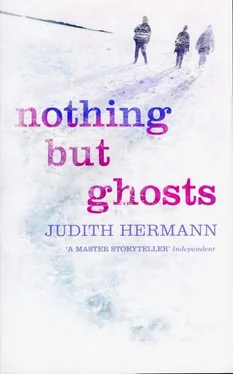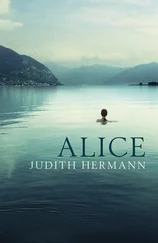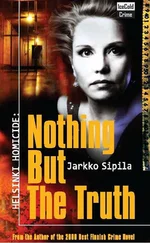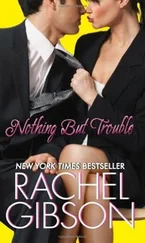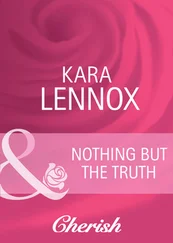And then during his last days in Berlin, twelve years later – by then he had met lots of girls but didn’t yet know that these would be his last days there – he suddenly lost everything. He lost his apartment key, his money and his watch, he was fired from his job, hung out in bars with some guys he met, and had the feeling his whole life was coming apart, for no reason, inexplicably, out of the blue. He seemed to be falling and falling and there was nothing to check his fall. And then with the last of his money he bought himself the most beautiful suit he had ever owned, a pair of sunglasses, new shoes, and for two days and two nights he made the rounds of all the taverns and pubs in town. Early the third morning, at seven, he was standing at Hjalmar and Irene’s door in Schöneberg saying, ‘I’ve got to get some sleep. Would you please let me sleep here?’ And Hjalmar and Irene put him in their bed, closed the curtains and turned off the light. Magnus slept for two days, then he got up, said goodbye, broke into his own apartment, packed his things, left Berlin and returned to Reykjavíik.
‘Oh, Magnus,’ Jonina says and claps her hands when he tells her this story, ‘oh, Magnus, what a lovely story about your departure.’ Magnus hasn’t been back to Berlin since. He doesn’t keep in touch with the friends from those days any more. Jonina telephones a girlfriend in Vienna twice a year, that’s all. The past is shut as tightly as a clamshell. And then Magnus says, ‘Irene is coming to Iceland, and she’s bringing someone. I don’t know him; at any rate it isn’t Hjalmar and he’s not an Icelander.’
Irene. What a solid, compact, cold name. ‘Were you living with her?’ Jonina asks. It’s really the first thing she wants to know, and Magnus laughs a little defensive laugh. ‘No, never. She was with Hjalmar for a pretty long time; they didn’t break up till after I left Berlin.’
Irene is giving a slide lecture in Reykjavik about German architecture. Hjalmar gave her the phone number of another Icelander, in Japan, he in turn directed her to someone in California, and in California she was given Magnus’s phone number. She calls him and says, ‘Excuse me, Magnus. We haven’t been in touch for a long time. But I’m coming to Reykjavik soon and I thought we could get together.’
‘Are you looking forward to it?’ Jonina says. ‘In a way, yes,’ Magnus replies. ‘Of course I’m looking forward to it. It could turn out to be very nice. It could also misfire completely. I don’t know.’ You can’t know about anything, Jonina thinks. Dear Magnus, you can’t know about anything at all, and you always have to be prepared for the worst, and for the best too.
That year the snow came unusually early. In mid-November it is already four feet deep outside Reykjavík; the Ring Road has to be cleared daily; many of the roads leading into the interior of the island are closed; villages cut off from the outside world. In other countries the airports would be shut down in weather like this; not in Iceland. The planes of Iceland Air land even on iced-over runways. Irene and Jonas arrived at Keflavéik airport at the end of November, in a snowstorm with gale-force winds and below-freezing temperatures. Jonas will keep talking about it for the entire ten days of their stay.
Magnus doesn’t pick them up at the airport, although he has the time, but the first evening after their arrival in Reykjavik he goes to hear Irene’s slide talk. He really is interested in architecture. Jonina is driving to her parents’ summerhouse in Olurfsbudir with Sunna. ‘Ask them if they want to come to Olurfsbudir. Ask them if they’d like to drive out there,’ Jonina says. ‘Are you sure?’ Magnus asks. Jonina looks at him, annoyed. Of course she’s sure.
She’s been with Magnus for two years now. She-is thirty-five and has a six-year-old daughter who has no contact with her father any more. She met Magnus at a dinner at the house of some friends – he was described to her as someone she would surely be interested in, a psychologist, refined, a little odd, reserved and a bit mixed up, but good-looking; the description proved correct. Once they separated for four months, but now they’re together again.
She can’t stand it when Magnus asks if she’s sure. If she weren’t sure, she wouldn’t have said anything. She wouldn’t have invited Irene and Jonas – total strangers to her – if she weren’t sure that it would work out well. Or maybe not well. Why should it always work out well? They would either get along or they wouldn’t, whichever. She says, ‘I’d like to meet Irene, and it would be nice for Irene to get out of Reykjavék, so ask her,’ and then she drives off.
She has packed snowsuits, food, wine and packets of cigarettes into the boot of the car and has driven off with Sunna to Olurfsbudir. A cluster of small summerhouses on the west coast, six miles from the ocean – seventeen summerhouses on a hillside in the middle of the heath. Grassy hummocks, moss, dwarf shrubs, and on the horizon, very far away, the mountains. That is all. The summerhouses are simple low, log cabins, each with two small bedrooms, an eat-in kitchen, a terrace and a pool you can fill with hot-spring water.
Jonina’s favourite time to be in Olurfsbudir is winter when the snow has covered the heath and everything is white all the way to the blue mountains. It gets light at eleven o’clock and dark again at four. It is silent, vast and godforsaken – black herds of Iceland horses and the steam rising from the pool, the only things moving. And the light changes from minute to minute, fog, walls of fog, the sun, a sudden view of the mountains, the sky splitting open and drawing shut again with threatening, blue-black clouds, then again fog and no more light at all.
Jonina finds driving to Olurfsbudir soothing; it calms her nerves, her whole body and also her heart. She longs to sit on the sofa by the window in the wooden house, to stare out at the grassy hummocks and not think of anything. Even after all these years she still finds it purifying. She was afraid that Magnus wouldn’t know how to deal with Olurfsbudir when she took him out there for the first time, that he would think it all too monotonous, too quiet, but her fears were unfounded. Magnus enjoyed Olurfsbudir. On his first visit there, he took a small leather suitcase the contents of which Jonina inspected while he was in the bathroom. Three ironed shirts, three pairs of trousers, a perfect travelling case with shoe polish, brushes, polishing cloths, another case just as perfect containing sewing things, and a CD by Nick Cave. Jonina stood before the suitcase staring at its contents, at its touching and disquieting contents; then she snapped it shut again.
Magnus calls late that night. Sunna is already asleep. The other summerhouses are unoccupied in the wintertime. He says, ‘Well then, we’ll come tomorrow; they would very much like to come too.’ ‘What are they like?’ Jonina asks. ‘What’s the guy like and how did it go with Irene?’ Magnus laughs softly. Jonina feels a wave of affection; she suddenly feels very sorry for him; or rather, she would like to touch him now. It must really be awful – meeting again after such a long time. He says, ‘It was good. No, really, it was good. She gave a fine lecture and afterwards we went out to eat. It wasn’t difficult; actually it was the way it used to be,’ and Jonina says, ‘Then come. Don’t get here too late. It is very beautiful out here.’
Jonina folds the wrapping paper around the photo again; her breathing is shallow and quiet; her heart is pounding; she is afraid that Magnus might wake up any moment. He doesn’t. He is sleeping his sound, childlike sleep behind the white bedroom door. In the kitchen Sunna pours cornflakes into a bowl; the sound seems incredibly loud to Jonina. She gets up and walks over to the hall cupboard and puts the package under the boxes that contain her old school exercise books, her photographs and letters. She’s got to find another place for it, maybe get it out of the apartment entirely, or maybe she ought simply to show it to Magnus. She isn’t sure. ‘What are you doing,’ Sunna calls from the kitchen; it’s not a question, it’s a statement; she sounds suspicious and grown up. ‘Nothing,’ Jonina says. ‘I’m only putting things away.’ She has to laugh.
Читать дальше
